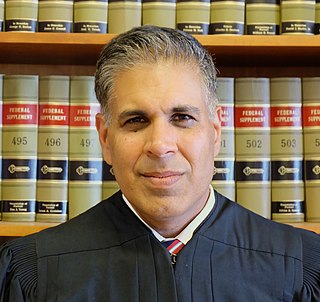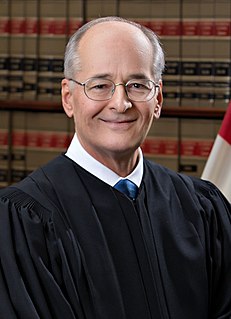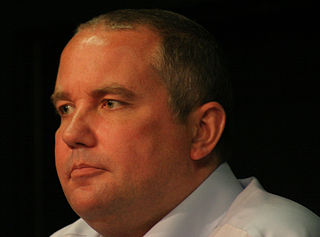A Quote by Lewis Carroll
Fury said to a mousethat he met in the houselet us both go to law; I will prosecute youlet there be no denial; come, we must have a trialfor really, this morning, I've nothing to dosuch a trial, dear sir, said the mouse to the curwithout jury or judge would be wasting our breathI'll be judge, I'll be jurysaid cunning old furyI'll try the whole cause and condemn youto death
Related Quotes
Mr. Buckley, let me explain it this way. And I'll do so very carefully & slowly so that even you will understand it. If I was the sheriff, I would not have arrested him. If I was on the grand jury, I would not have indicted him. If I was the judge, I would not try him. If I was the D.A., I would not prosecute him. If I was on the trial jury, I would vote to give him a key to the city, a plaque to hang on his wall, & I would send him home to his family. And, Mr. Buckley, if my daughter is ever raped, I hope I have the guts to do what he did.
I believed there was enough evidence to go to trial. Grand jury said there wasn't. Okay, fine. Do I have a right to disagree with the grand jury? Many Americans believe O.J. Simpson was guilty. A jury said he wasn't. So I have as much right to question a jury as they do. Does it make somebody a racist? No! They just disagreed with the jury. So did I.
The average juror is not Mr. Spock. If he were, then a trial-court judge's job would be much easier. He could instruct the jury in broad strokes - instructing only as to the bare elements of the crime, perhaps - and be confident that the jury would deduce all of the finer-grained implications that must logically follow.
It's OK if we wiretap Osama bin Laden. I want to know what he's planning - obviously not him nowadays, but that kind of thing. I don't care if it's a pope or a bin Laden. As long as investigators must go to a judge - an independent judge, a real judge, not a secret judge - and make a showing that there's probable cause to issue a warrant, then they can do that. And that's how it should be done.
People must be confident that a judge's decisions are determined by the law and only the law. He must be faithful to the Constitution and statutes passed by Congress. Fidelity to the Constitution and the law has been the cornerstone of my life and the hallmark of the kind of judge I have tried to be.
Good morning, Eeyore," said Pooh. "Good morning, Pooh Bear," said Eeyore gloomily. "If it is a good morning, which I doubt," said he. "Why, what's the matter?" "Nothing, Pooh Bear, nothing. We can't all, and some of us don't. That's all there is to it." "Can't all what?" said Pooh, rubbing his nose. "Gaiety. Song-and-dance. Here we go round the mulberry bush.
You swore to stay with me,” he said. “When we made our oath, as parabatai. Our souls are knit. We are one person, James.” “We are two people,” said Jem. “Two people with a covenant between us.” Will knew he sounded like a child, but he could not help it. “A covenant that says you must not go where I cannot come with you.” “Until death,” Jem replied gently. “Those are the words of the oath. ‘Until aught but death part thee and me.’ Someday, Will, I will go where none can follow me, and I think it will be sooner rather than later.
But what would have been the good?" Aslan said nothing. "You mean," said Lucy rather faintly, "that it would have turned out all right – somehow? But how? Please, Aslan! Am I not to know?" "To know what would have happened, child?" said Aslan. "No. Nobody is ever told that." "Oh dear," said Lucy. "But anyone can find out what will happen," said Aslan. "If you go back to the others now, and wake them up; and tell them you have seen me again; and that you must all get up at once and follow me – what will happen? There is only one way of finding out.
Jurors have found, again and again, and at critical moments, according to what is their sense of the rational and just. If their sense of justice has gone one way, and the case another, they have found "against the evidence," ... the English common law rests upon a bargain between the Law and the people: The jury box is where the people come into the court: The judge watches them and the people watch back. A jury is the place where the bargain is struck. The jury attends in judgment, not only upon the accused, but also upon the justice and the humanity of the Law.


































